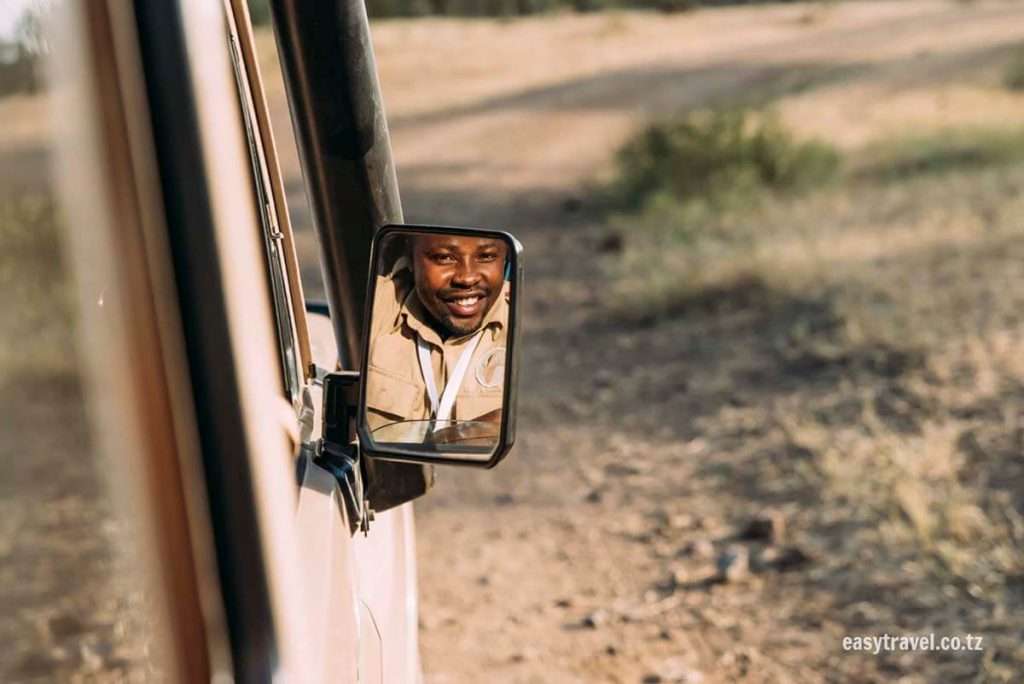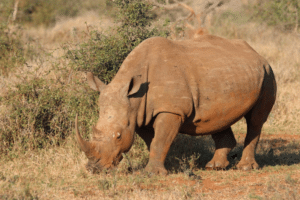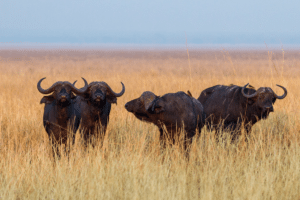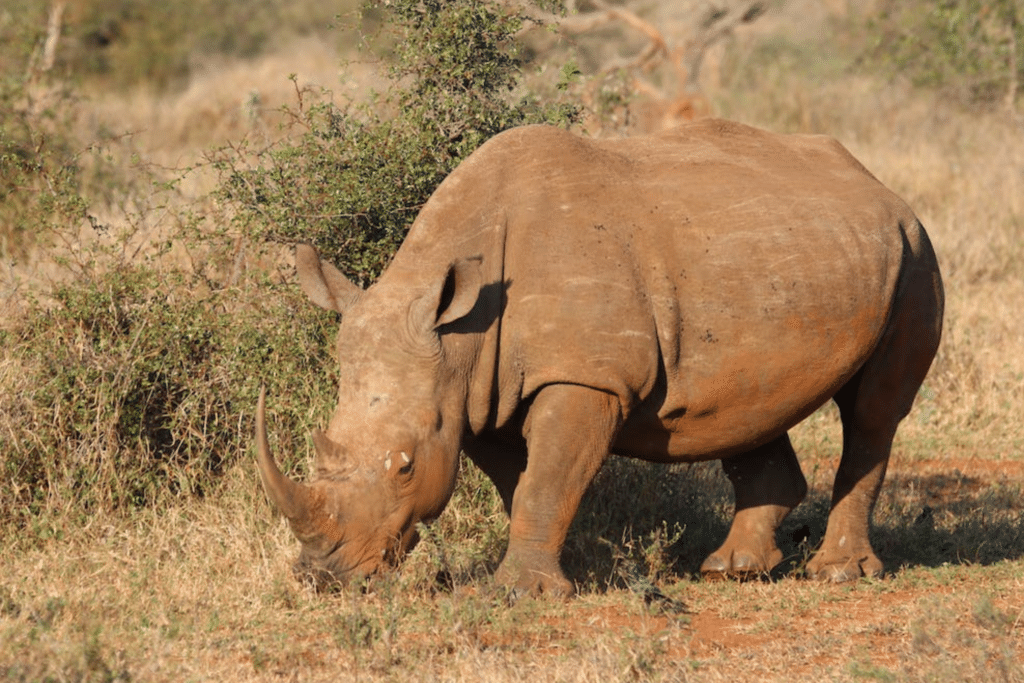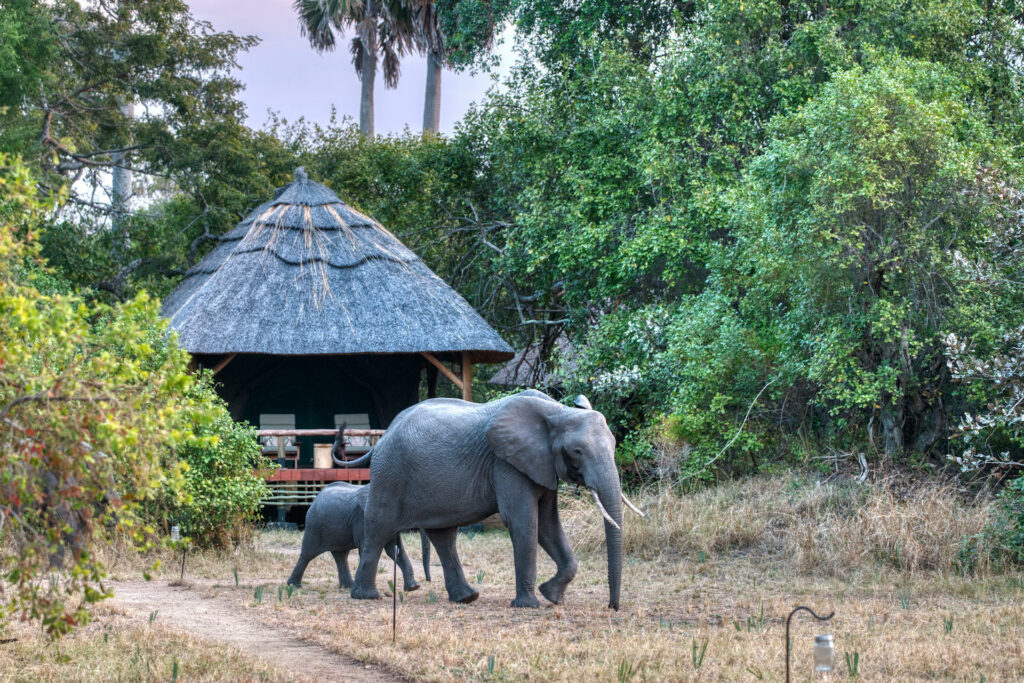When taking on a safari adventure in any part of the African continent, there are Safari do’s and don’ts that you must follow to ensure your safety in the natural habitat of wild animals.
Here are some of the scenarios that will be playing…
Two safari vehicles bounce along a dirt road in the Serengeti National Park. Surrounding them are 5,000 square miles of savannah roaring with wildlife, a protected tract of land larger than New York State.
Both vehicles are full of travelers like you and are out for their morning game drive. But there’s one significant difference between them.
Do you see the vehicle in front? That one is full of people who exude proper safari etiquette. They are responsible wildlife lovers whose actions represent a favorable approach to safari.
The second Land Cruiser? Well, that one is full of folks whose behaviors prove less appropriate for safari.
Look at the road forks ahead. Each vehicle chooses a road. Let’s follow them separately to understand better what to do and what not to do on safari, shall we?
Vehicle #1: Good safari etiquette
1. Do be courteous of volume
A man in the backseat asks the driver, “Are acacia trees negatively affected when giraffes graze their upper canopy?” (Answer: Acacias depend on large grazing herbivores—Source).
He doesn’t yell or demand all the driver’s attention. Instead, he lets others ask questions. Patience and punctuality are essential on safari, as time and space are shared and limited.
2. Do wear natural colors
Drawing near the first vehicle, it becomes evident that all passengers are attired in earthy, natural tones—khaki, olive, and brown—a deliberate choice with profound implications for wildlife encounters. Bright colors such as reds and blacks may agitate wild animals, while blue hues tend to attract insects, underscoring the practicality of neutral attire.
Moreover, the unpredictable nature of all-day game drives necessitates preparedness for fluctuating weather conditions. Keeping a scarf or jacket within reach for added comfort and versatility throughout the safari expedition is wise. By adhering to these considerations, travelers optimize their safari experience while respecting the natural environment and its inhabitants. What to Wear on Safari?
3. Do learn Swahili greetings
A woman in the Land Cruiser spots movement in the bush and politely asks the driver to slow down, thanking him in Swahili, “Asanti sana.” Tanzanians appreciate it when you try their language out. A little bit goes a long way. Here are some essential phrases to try: View More
4. Do pack light
While the first vehicle halts to observe four majestic cheetahs perched upon a rocky outcrop, take a moment to glance at the back of the car. There, you’ll notice that each traveler’s luggage is compact and robust, carefully chosen to contain only the essentials for the safari adventure ahead.
Opting for durable bags ensures seamless transitions in and out of the vehicle, facilitating easy access to belongings while maximizing space for fellow travelers. By packing efficiently and prioritizing durability, you contribute to the smooth flow of the safari experience, fully immersing everyone in the awe-inspiring wildlife encounters.
Check out our 10 Essential Items to Pack Post.
5. Do tip your guides
Each bag includes US dollars intended to tip the guides after the safari—an industry-standard practice to express appreciation for their service.
Your journey with Easy Travel promises the expertise of professional drivers who accompany you tirelessly, offering insights, answering inquiries, and enriching your experience with cultural context. Given their exceptional service, tipping is encouraged and appreciated as a gesture of gratitude for the dedication and effort invested in ensuring a truly unforgettable safari adventure.
Vehicle #2: Not-so-good safari etiquette
While continuing on our safari, it is vital to follow specific safari etiquette to make the experience enjoyable and respectful. Before entering the wilderness to locate the pride of lions, I want to remind you of the following standards.
We should reduce our effects on the environment and treat the African bush with care and response. Furthermore, upon entering the second Land Cruiser, let us drive responsibly, staying respectful of the mesmerizing outdoor scenery.
6. Don’t get out of the vehicle.
As we pull up, someone is outside the second Land Cruiser, taking photos of an elephant in the distance. This is a significant safety concern and is only advisable once your experienced driver can find a safe place to do so. Easy Travel guides have decades of experience and will ensure that each passenger is always safe and secure.
7. Don’t be obnoxious.
Inside the second vehicle, everyone talks loudly over each other. Be aware of others in your safari group. Ensure your voice is considerate and manageable for you and the wildlife. (Note: many animals are susceptible to sound. Did you know that elephants can hear storms from as far as 150 miles away? They can even hear through their feet! (Source).
8. Don’t be on your iPhone.
A young man sits in the front of the vehicle and flips through text messages, just as a Bateleur eagle flies overhead with its six-foot wingspan. He missed an opportunity! Each safari offers three to four days of game drives; believe me, they will go fast. So, turn off your devices and focus on wildlife.
9. Don’t stop for everything that moves.
This Land Cruiser starts and stops every mile because each traveler asks the driver to stop whenever they see a gazelle. Gazelles, though majestic, are everywhere, and your driver wants to show you all of what Tanzania has to offer.
Easy Travel guides know all Tanzania’s nooks and crannies and are excited to show you them off. And this takes time. What Animals Will I See on Safari?
10. Don’t choose inexperienced safari operators.
Be sure to choose a safari provider that knows what they’re doing. Locally owned and operated, with state-of-the-art, customized Land Cruisers and over 25 years of safari experience, Easy Travel knows each park and reserve’s most exciting regions. So choose wisely, travel responsibly, and be ready for a life-changing experience.
Vehicle #2: Not-so-good safari etiquette
Now that we’ve seen what some good safari etiquette looks like, let’s check in on the second Land Cruiser and see what we might avoid while searching for that pride of lions.
6. Don’t get out of the vehicle
As we pull up, someone is outside the second Land Cruiser, taking photos of an elephant in the distance. This is major safety concern and is not advisable until your experienced driver can find a safe place to do so. Easy Travel guides have decades of experience and will ensure that each passenger is safe and secure at all times.
7. Don’t be obnoxious
Inside the second vehicle, everyone talks loudly over each other. Be aware of others in your safari group. Make sure that your voice is considerate and not overbearing for you or the wildlife. (Note: many animals are extremely sensitive to sound. Did you know that elephants can hear storms from as far as 150 miles away? They can even hear through their feet! (Source).
8. Don’t be on your iPhone
A young man sits in the front of the vehicle and flips through text messages, just as a Bateleur eagle flies overhead with its six-foot wingspan. Missed opportunity! Each safari offers but three to four days of game drives, and, believe me: they will go fast. So turn off your devices and turn on your focus towards wildlife.
9. Don’t stop for everything that moves
This Land Cruiser starts and stops every mile because each traveler asks the driver to stop whenever they see a gazelle. Gazelles, though majestic, are everywhere, and your driver wants to show you all of what Tanzania has to offer.
Easy Travel guides know all the nooks and crannies of Tanzania and they are excited to show you them off. And this takes time. What Animals Will I See on Safari?
10. Don’t choose inexperienced safari operators
Be sure and choose a safari provider that knows what they’re doing. Locally-owned and operated, with state-of-the-art, customized Land Cruisers and over 25 years of safari experience, Easy Travel knows the most exciting regions of each park and reserve in the country. So choose wisely, travel responsibly, and be ready for a life-changing experience.
Bottom line?
Safari is all about celebrating the wild places. It’s about honoring the beautiful creatures that live there. So tread lightly, express genuine interest in Tanzanian culture, and choose an outfitter who’s both experienced and responsible. With these in mind, you’re bound to have a life-changing experience.
Getting you there?
From 5-—to 7-day small-group tours to custom, private safaris, contact Easy Travel today and let’s get you on the road.
Frequently Asked Questions (FAQs)
What should I pack for an African safari trip?
When preparing for your African safari adventure, it’s essential to pack wisely. Opt for lightweight, breathable clothing in neutral colors to blend into the natural surroundings. Remember to include sunscreen, insect repellent, a wide-brimmed hat, and comfortable walking shoes.
Pack binoculars and a camera with extra batteries to capture the stunning wildlife and landscapes. Bring medications, a reusable water bottle, and a small first aid kit. Remember to pack lightly and use soft duffel bags instead of hard suitcases, as they are easier to transport in safari vehicles and fit into your safari camps’ nooks.
Can I feed the animals during an African safari?
Feeding animals during your African safari is strictly prohibited and highly discouraged. It disturbs their natural behavior and can lead to dependency on human food, harming their health and well-being.
Respect the animals and watch them from a safe distance without interfering in their natural habitat. Remember, you are a guest in their home, and minimizing your environmental impact is essential.
What languages should I speak during an African safari?
While English is a common language in many African nations, familiarizing yourself with essential phrases in local languages can significantly enrich your cultural experience. Learning simple greetings or expressions in languages like Swahili, prevalent in East Africa, can foster deeper connections with locals and safari guides, enhancing the authenticity of your interactions.
Nonetheless, it’s reassuring that most tour guides and staff at safari camps are proficient in English, ensuring effective communication throughout your safari journey. So, while linguistic diversity adds depth to your experience, rest assured that clear communication channels in English remain readily available during your safari trip.
What are some dos and don’ts regarding interacting with local cultures during an African safari?
Respect for local cultures is paramount during an African safari. Always ask for permission before taking photographs of local people or their homes, and be mindful of cultural sensitivities. Dress modestly and do not wear clothing that may be offensive or improper in the regional context.
Engage with locals respectfully, and take the time to learn about their traditions and customs. Supporting local communities through responsible tourism initiatives can contribute to their primary income and sustainable development.
Can I explore the African bush on my own during a safari?
Exploring the African bush on your own is not advisable for safety reasons. The African savannah and bushland are vast and potentially dangerous environments, home to wild animals that should be approached with caution and respect. Always follow your safari guide’s instructions and stay within designated areas for your safety and wildlife protection.
What are the rules regarding photography during an African safari?
Photography is a remarkable means of immortalizing the breathtaking moments encountered during your safari expedition, yet it must be approached with responsibility and mindfulness. Respect for the privacy and natural behavior of wildlife is paramount, necessitating the avoidance of flash photography to prevent startling or distressing the animals.
While capturing memories through photographs, remain aware of your surroundings and fellow travelers, ensuring that your actions do not impede their experiences or safety. Ultimately, prioritize the welfare of yourself and the wildlife, recognizing that preserving these remarkable moments ethically surpasses any image.
Is it safe to drink water during an African safari?
Maintaining proper hydration is essential for a successful and enjoyable African safari experience, but safeguarding the quality of the water you consume is equally vital. To mitigate the potential risks of waterborne illnesses, rely on bottled or purified water supplied by reputable safari camps or lodges.
Never drink tap water or untreated water from rivers or lakes, as these may harbor harmful bacteria or parasites that could compromise your health during the safari adventure. Prioritize your well-being by adhering to safe drinking practices, ensuring every sip contributes to a secure and memorable safari experience.
What should I do if I encounter wildlife up close during an African safari?
The opportunity to encounter wildlife up close is undeniably thrilling during an African safari, yet it demands a sense of composure and respect. Heed the guidance of your experienced safari guide, adhering to their instructions diligently to ensure a safe and harmonious interaction.
It is paramount to keep a respectful distance and refrain from disturbing or agitating the animals. Remember, maintaining a safe distance not only safeguards your well-being but also preserves the natural behavior and habitat of the wildlife, fostering a truly authentic safari experience.
Are there any specific etiquette guidelines for staying in safari camps?
Ensuring a harmonious stay at safari camps entails mindful consideration for both fellow travelers and camp personnel. Maintaining a tranquil atmosphere by minimizing noise, particularly during the quieter hours of early morning and late evening, fosters a conducive environment for all.
Heed the camp manager’s directives concerning safety measures and wildlife interactions, as their expertise ensures the well-being of all guests. Additionally, adhering to designated areas and pathways within the camp enhances safety. It preserves the integrity of the surrounding environment, contributing to a memorable and respectful safari experience for everyone involved.
Can I collect souvenirs from the African bush during a safari?
Collecting souvenirs from the African bush, including plants, rocks, or animal bones, is discouraged due to its detrimental impact on the delicate natural ecosystem. Such actions disrupt the balance of the environment and may even violate laws protecting certain protected areas.
Instead, adopt the ethos of leaving only footprints behind and cherish your safari memories through photographs and experiences. Moreover, channel your support towards local artisans and communities by purchasing handmade crafts or artwork from authorized vendors.
What should I do if I become lost or separated from my safari group?
Maintaining composure is paramount if you become lost or separated from your safari group. Remain stationary in one location to facilitate rescue efforts. Use any communication tools, such as a cell phone or radio, to swiftly alert your guide or camp staff of your predicament.
Resist the urge to wander in search of your group, which can complicate rescue operations and prolong your isolation. Trust your guide’s expertise and follow their instructions to expedite a safe and seamless reunion with your safari party.
Is it safe to swim in natural water sources during an African safari?
While swimming in natural water sources may be tempting due to potential hazards, it’s essential to exercise caution during an African safari. Lakes and rivers may harbor dangerous wildlife, parasites, and waterborne diseases, posing significant risks to swimmers.
To mitigate these dangers, opt for designated swimming areas within safari camps or lodges where water is regularly monitored and treated for safety. Prioritize your well-being by adhering to the guidance provided by your safari guide or camp staff regarding water activities, ensuring a relaxing and risk-free experience amidst the wilderness.
What should I do if I encounter aggressive wildlife during an African safari?
If you encounter aggressive wildlife during an African safari, remain calm and slowly back away from the animal without making sudden movements. Do not run or scream, as this may provoke a chase response from the animal.
Use any available barriers, such as a vehicle or large rock, to create distance between yourself and the animal. If attacked, protect your vital organs and play dead until the animal loses interest or help arrives.
Are there any health precautions before embarking on an African safari?
Before setting off on your African safari adventure, prioritize your health by seeking guidance from a healthcare professional or travel medicine specialist. Discuss thoroughly about essential vaccinations, medications, and health precautions tailored to your destination and personal medical history.
Adhere closely to the recommendations outlined by reputable health authorities, like the World Health Organization, particularly concerning malaria prophylaxis, yellow fever vaccination, and other region-specific health concerns. Pack a compact first aid kit containing essential supplies to ensure preparedness for any unforeseen medical needs and ensure you have enough prescription medications necessary for your safari trip.
What should I do with my waste during an African safari?
Proper waste management is essential during an African safari to minimize your environmental impact and preserve the pristine beauty of the natural landscapes. Dispose of waste responsibly in designated bins or containers your safari camp or lodge provides.
Avoid littering or leaving trash behind, and consider packing out any non-biodegradable waste to dispose of properly upon your return. Reduce waste by choosing reusable or recyclable products whenever possible and supporting eco-friendly initiatives implemented by your safari provider.














